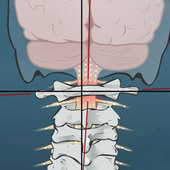
In our high tech, fast paced world full of flashing lights and bells and whistles, we now have the ability to simulate daytime 24/7.

This allows us to get more done in a day, be more productive, and stay connected more often… fantastic, right? Now, more than ever, the field of sleep science is booming, and more and more studies are confirming the need for a good night sleep. We know that sleep helps in the learning process and consolidation of memories, allows our body to grow and heal, and aids in weight control. Without it we are less productive, more likely to be irritable, and at a greater risk for accidents and injuries. Sleep is also critical for allowing our body to clear out the toxic waste build up in our brain, as was discussed in a previous article Your Brain’s Sewage System.
A recent study looking at the clearance of amyloid-b from the brain of rodents during sleep found that posture during sleep has a significant influence on the removal of waste and amyloid-b build-up in the brain. The researchers found that sleeping in a side position led to the greatest waste removal, followed by back sleeping. Interestingly enough, stomach sleeping was found to actually impede the clearance of waste products from the brain. It is thought that increased opening of the drainage pathways from the brain to the body while in a side-lying position may be the cause, compared to when lying on the back or stomach.
Now, is there a better side—left or right—to be sleeping on? The study referenced above specifically looked at sleeping on the right side. Other studies looking at sleep posture and different health conditions have found that sleeping on the right side can also help to reduce the sympathetic (fight or flight) stress response in the body and can be more beneficial for cardiac conditions, such as congestive heart failure, while sleeping on the left side can help to reduce gastric reflux (heart burn).
Side and back sleeping have long been touted as the best sleeping positons for preventing neck and back pain. Now there is evidence that these positions may also be healthier for our brains. Our posture not only influences our ability to function when we are awake, but it also plays an important role when we are asleep. Making sure you have a supportive mattress and pillow and a dark, cool sleeping sanctuary are great ways to optimize your sleep quality. Now, disconnect from your devices, turn off the lights, pick a side, and enjoy a great night’s sleep!
Written by Dr. Michelle Speranza



